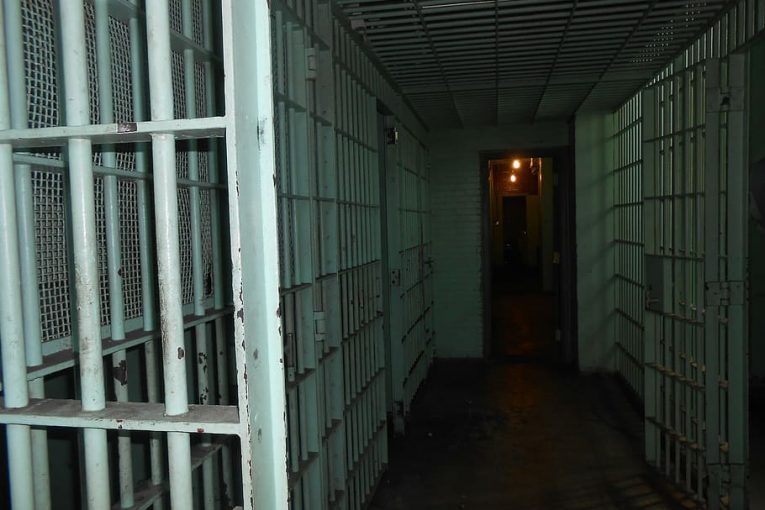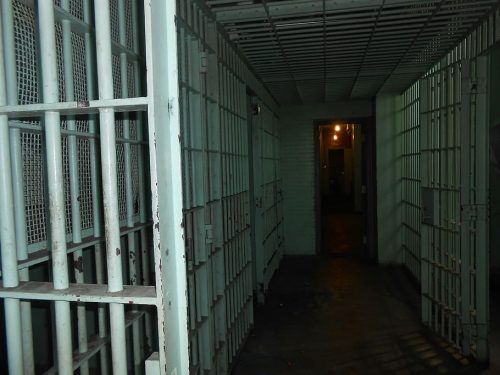

By Isabella Walker and Audrey Sawyer
NORTHHAMPTON, MASS – Extreme weather like heatwaves in states across the South and Southwest, flash floods in the Northeast, also impact prisons and jails but coverage of how over a million prisoners are coping with the conditions are underreported, according to the Prison Policy Initiative.
As noted in a report from the Prison Policy Initiative, research shows how unprecedented heat in addition to cooling measures and a lack of air conditioning is particularly dangerous to individuals residing behind bars.
The Prison Policy Initiative via a recent nationwide study places particular emphasis on the Northeast regarding a notable relationship between deaths in prison with conditions of extreme heat, noting extreme heat, in combination with other issues like pests and diseases, not only makes prison life miserable, but fatal.
Led by epidemiologist Julianne Skarha, researchers had compared notably high temperatures during the summer months at prisons. Two datasets (one being annual deaths in State Prisons from the Bureau of Justice Statistics, the other being hourly temperature data from the North American Land Data Assimilation System), evaluated “risk” (or exposure) to an event (like multi day heatwaves) to see an acute (meaning heart disease, death from any cause, or “suicide”) outcome. Deaths up to three days after each heat event were analyzed.
PPI said an unusual amount of heat was noted to be with higher numbers overall of mortality. Research had indicated that for every ten-degree increase above the prison location’s average summer temperature, around five percent of deaths (all causes) happening could be attributed to the heat.
Days that followed a hotter than average day were associated with death, with the risk of heat-related death declining (showing that mitigation of heat immediately is crucial).
Researchers said an extreme heat (falling within the hottest 10 percent of days for a location) day saw about a 3.5 percent increase in deaths. The hottest days had a delayed impact on suicides, seen to increase by 23 percent over the three days that came after. With prisons already existing to harm one’s mental health as it is, the excruciating heat and a prison’s failure to provide relief from it could bring one to unbearable distress.
Researchers added when evaluating two- or three-day heatwaves, deaths increased by 5.5 percent and 7.4 percent respectively. The impact of heat in the Northeast region is noted by the study’s authors to be the highest linking heat with mortality.
Even with results as alarming as what was found, the results are likely to be underestimating the heat in prisons without air conditioning, as that element was not available for the analysis, said researchers, adding data was not available for the type of housing individuals were kept in before they passed, like a solitary confinement cell. Skarha et al is shown to be the first publication to indicate that prisons are heating individuals to their deaths.
Although air conditioning is seen to be widespread throughout homes across the South, air conditioning is not a universal feature of prison buildings in known hot states. A survey based in California prisons by the Ella Baker Center found that the majority of respondents didn’t have access to more water or showers on particularly hot days.
Sixty-two percent of respondents were said to have experienced heat exhaustion with 41 percent reporting heat cramps due to extreme heat or nearby wildfires. Sixty-seven percent of respondents said they were worried or extremely worried about their own physical safety in the case of extreme heat at their prison.
Although it is unconstitutional for inmates to endure extreme temperatures, the judicial system has not provided prisons with solutions, said PPI, adding, “Prisons are largely unprepared to respond to facility-wide emergencies and disasters.”
A simple solution is providing fans and towels to inmates, but these relief measures are marked up to a high price for inmates to purchase, noted PPI, explaining the average fan and towel can cost $30 and $18 respectively, and most inmates make less than $0.05 an hour.
Prisons near bodies of water are facing mosquito infestations during these hot and humid months, said PPI, noting, unfortunately, insect repellent and measures to combat rising mosquito populations are failing; insect repellent is administered at a cost and pesticides are destroying the surrounding ecosystems.
Near the Great Salt Lake in Utah, the prison staff’s use of pesticides is negatively affecting the jobs of citizens who rely on the ecosystem, the report said, adding the “incarcerated population [is] at risk of mosquito-born illness, flooding, and contaminated water.”
With global temperatures rising, infectious diseases in prisons are surging as well, noted the report, stating Valley Fever, which is a lethal fungal bacteria, is spreading throughout prisons in the Southwest. Similarly to the mosquito infestation, prison staff are not equipped with solving the problem.
Hot and humid weather is also associated with more physical violence in prisons, according to current studies that have revealed that “violence under ‘thermal stress’ may perpetuate mass incarceration;” as inmates act more violently, they are punished with “disciplinary infractions” that prolong their prison sentences.
PPI said extreme weather phenomena are also proving to be an unresolved issue in prisons. Prisons are unprepared to protect inmates from hurricanes, floods, fires, blizzards, and other dangerous weather patterns (and) health coverage is expensive for inmates who are injured from extreme weather and emergency procedures are failing to protect them. 